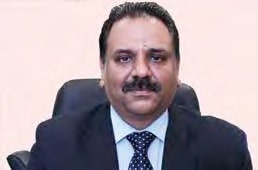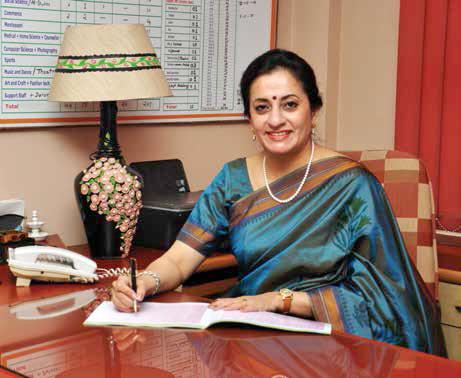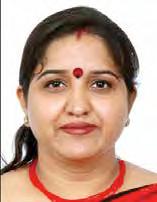 Anit Arora, Principal
Anit Arora, Principal
Cambridge International
School, Dasuya
Today’s parents are better educated, more aware of current trends in education and more familiar with technology
Pedagogy – Teachers are expected to frame their lessons incorporating key learning and personality development areas, that is, personal, emotional and social development; linguistic development and early literacy; health, nutrition and safety; mathematical and scientific thinking; physical, creative and aesthetic development; and knowledge and understanding of the society.
Infrastructure – We have air conditioned classrooms, sprawling playgrounds, temperature controlled swimming pool and splash pools, creative and performing arts centres, library, multi-purpose hall, as well as science, maths, computer and language laboratories. We have also introduced interactive boards for the primary classes.
Teachers’ Training – Teachers undergo continuous training for improving class management and learning techniques like life skills and etiquettes, subject related learning pedagogy and sharing best practices.
Technology – Educators have been trained to develop the respective content themselves, in keeping with the syllabus mapping. Enterprise Resource Planning is being used to manage the whole school, including the learning and assessment processes.
Sports – Specialized coaches train students for competitions in field events, athletics, swimming pool events, indoor games, and so on.







 We believe that teacher training is as important as oxygen is to life
We believe that teacher training is as important as oxygen is to life We should promote the lifelong universal values of discipline, compassion, co-existence, love and respect that humanize and soften the pressures of life.
We should promote the lifelong universal values of discipline, compassion, co-existence, love and respect that humanize and soften the pressures of life. I am proud of the fact that I harnessed the power of decision making, learning and leadership skills to meet the challenges head on and turned them into opportunities.
I am proud of the fact that I harnessed the power of decision making, learning and leadership skills to meet the challenges head on and turned them into opportunities. Parents want their children to be more dynamic, skill oriented, and strong in communication
Parents want their children to be more dynamic, skill oriented, and strong in communication Jorawar Singh, Principal
Jorawar Singh, Principal Manju Sharma, Principal
Manju Sharma, Principal
 Every child is an individual and has a set of potential capabilities to execute in one or the other field. They should be nurtured to make students global citizens.
Every child is an individual and has a set of potential capabilities to execute in one or the other field. They should be nurtured to make students global citizens.











